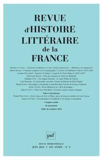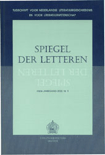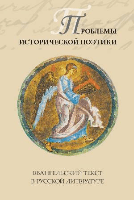
RUSSKAIA LITERATURA
Scope & Guideline
Connecting Scholars to the Heart of Russian Literary Analysis
Introduction
Aims and Scopes
- Historical Literary Analysis:
The journal emphasizes the historical context of Russian literature, examining how historical events shape literary movements and individual works. - Interdisciplinary Approaches:
It incorporates methodologies from various disciplines including history, cultural studies, and textual criticism to offer a comprehensive understanding of literary phenomena. - Focus on Russian Authors and Movements:
There is a consistent focus on prominent Russian authors, such as Pushkin, Dostoevsky, and Sologub, as well as literary movements like the Silver Age, providing critical insights into their contributions. - Archival Research:
The journal promotes archival research, uncovering previously unpublished materials and exploring their significance in the literary canon. - Cultural and Literary Heritage:
It explores the interplay between literature and cultural identity, emphasizing the role of Russian literature in shaping national consciousness. - Contemporary Literary Criticism:
The journal also addresses contemporary issues in literature, including the influence of modernism and postmodernism on current literary practices.
Trending and Emerging
- Digital Humanities and Textual Analysis:
There is a growing trend towards utilizing digital humanities methodologies for textual analysis, reflecting the impact of technology on literary studies. - Interdisciplinary Research on Literature and Politics:
Emerging themes include the intersection of literature and political discourse, exploring how literary works respond to and shape political contexts. - Global Perspectives on Russian Literature:
An increasing focus on the global reception of Russian literature, examining its impact and reinterpretation in various cultural contexts. - Post-Soviet Literary Studies:
Research on post-Soviet literature has gained momentum, focusing on the narratives and identities that have emerged in the wake of the Soviet Union's dissolution. - Cultural Memory and Trauma:
The exploration of cultural memory, trauma, and identity in Russian literature is becoming a significant area of study, reflecting contemporary societal concerns. - Literature and Environmental Issues:
Emerging discussions around environmental themes in literature indicate a trend towards addressing ecological concerns through literary lenses.
Declining or Waning
- Traditional Folklore Studies:
There has been a noticeable decline in studies centered around traditional folklore and its literary adaptations, as contemporary themes and modern literary forms gain more attention. - Historical Biographies of Lesser-Known Authors:
Research focusing on the biographies of less prominent authors from earlier centuries has decreased, possibly overshadowed by more significant literary figures. - Static Literary Criticism:
The journal has shifted away from static forms of literary criticism that do not engage with contemporary theoretical frameworks, favoring dynamic analyses that incorporate modern critical perspectives. - Nostalgic Narratives:
Themes that revolve around nostalgia and romanticized views of historical literary periods are appearing less frequently, as scholars seek more critical and nuanced interpretations. - Censorship Studies:
The exploration of censorship in historical contexts is less prominent now, as the focus has shifted towards broader themes of freedom of expression in contemporary literature.
Similar Journals

Mundo Eslavo-Journal of Slavic Studies
Exploring the Depths of Slavic HeritageMundo Eslavo - Journal of Slavic Studies is a prominent journal published by UNIV GRANADA, EDITORIAL, dedicated to advancing the field of Slavic studies through open access scholarship since 2004. With an ISSN of 1579-8372 and an E-ISSN of 2255-517X, the journal aims to provide a platform for interdisciplinary research, covering a wide array of topics including literature, culture, history, and linguistics of Slavic regions. Based in Granada, Spain, this journal is crucial for researchers, professionals, and students seeking to explore and contribute to the understanding of Slavic heritage and contemporary issues. With a commitment to accessibility and scholarly rigor, Mundo Eslavo invites submissions that push the boundaries of conventional discourse in Slavic studies, ensuring that critical insights and diverse perspectives reach a global audience.

LETTERE ITALIANE
Navigating the Landscape of Literary ScholarshipLETTERE ITALIANE is a distinguished journal dedicated to the exploration of literature and literary theory, published by Casa Editrice Leo S Olschki in Italy. With its ISSN 0024-1334 and E-ISSN 2035-6315, this journal has established a niche for itself since its inception in 1987, covering a range of scholarly topics in the literary field. Currently categorized in the Q4 quartile for Literature and Literary Theory, it ranks at #964 out of 1106 in Scopus, placing it within the 12th percentile among its peers. Although not an Open Access journal, LETTERE ITALIANE serves as a vital resource for researchers, students, and professionals seeking to deepen their understanding of Italian literature and its evolving theories. The journal's commitment to academic rigor and its focus on critical literary discourse make it an essential addition to any scholar's library.

REVUE D HISTOIRE LITTERAIRE DE LA FRANCE
Advancing Understanding of Historical Literary MovementsREVUE D'HISTOIRE LITTERAIRE DE LA FRANCE, published by Classiques Garnier, is a distinguished academic journal dedicated to the exploration and analysis of French literary history and theory. With an ISSN of 0035-2411 and an E-ISSN of 2105-2689, this journal serves as an essential resource for researchers, professionals, and students in the fields of literature and the humanities. Though it does not currently offer open access, its rigorous scholarship contributes significantly to the understanding of historical literary movements and their cultural contexts. Despite its discontinuation in Scopus after 2016, the journal has a notable academic pedigree, providing critical perspectives on literature from the past to the contemporary era. Situated at 6 Rue de la Sorbonne, Paris 75005, France, the journal aims to enrich the discourse surrounding literary theory and history, highlighting its enduring relevance in today's scholarly landscape.

Neizvestnyi Dostoevskii-The Unknown Dostoevsky
Advancing Scholarship on Dostoevsky's LegacyNeizvestnyi Dostoevskii - The Unknown Dostoevsky, published by Petrozavodsk State University, is a distinguished open-access journal dedicated to advancing scholarship in literary studies, particularly focusing on the works and influence of Fyodor Dostoevsky. With an E-ISSN of 2409-5788, this journal has gained recognition for its in-depth analyses, critical reviews, and innovative interpretations of Dostoevsky's literature, placing it in the top Q1 category in Literature and Literary Theory for 2023. Situated in the Russian Federation, Neizvestnyi Dostoevskii is a vital resource for researchers, professionals, and students alike, offering unparalleled insights into the complexities of Dostoevsky's narratives. The journal's impressive Scopus ranking (Rank #58 out of 1106) and a remarkable 94th percentile in the field further underscore its impact and relevance. Since its transition to open access in 2014, the journal has committed itself to disseminating knowledge freely, fostering an inclusive academic environment in which the rich legacy of Russian literature can be explored and celebrated.

SPIEGEL DER LETTEREN
Bridging Past and Present in Literary ExplorationWelcome to SPIEGEL DER LETTEREN, a distinguished journal published by PEETERS in Belgium, with an impressive Q1 ranking in Literature and Literary Theory. Since its inception in 1996, this journal has been at the forefront of literary scholarship, engaging researchers, professionals, and students in profound discussions and analysis of literary texts, theories, and cultural contexts. Although it does not currently offer open access, its rigorous editorial standards ensure that each published work contributes significantly to the field, promoting the advancement of knowledge and understanding in literature. With an established reputation, SPIEGEL DER LETTEREN serves as a vital resource for those seeking to explore the nuances of literary studies, supported by a diverse range of articles that reflect both contemporary and historical perspectives.

Problemy Istoricheskoi Poetiki
Innovating Insights in Literary Theory and PracticeProblemy Istoricheskoi Poetiki is a leading academic journal in the field of Literature and Literary Theory, published by PETROZAVODSK STATE UNIVERSITY since 1990. With an impact factor that places it in the Q1 category for 2023, this journal is distinguished for its scholarly contributions, ranked #169 out of 1106 in the Scopus Arts and Humanities category, which positions it in the 84th percentile. Focused on advancing the understanding of historical poetics, the journal encourages rigorous research and offers Open Access to its published works, ensuring the dissemination of knowledge across borders, while fostering collaboration among scholars globally. The editorial board is committed to publishing innovative and insightful articles that address crucial themes in literary history, theory, and interpretation, making it an essential resource for researchers, professionals, and students alike. The journal's harmonious convergence of traditional literary studies with contemporary analytical approaches makes it a vital platform for exploring the dynamics of literature within its historical contexts.

Studia Litterarum
Fostering Global Connections through Literary ScholarshipStudia Litterarum, published by the esteemed Russian Academy of Sciences at the A.M. Gorky Institute of World Literature, serves as a vital platform for the exploration and analysis of literature and cultural studies. With an ISSN of 2500-4247 and an E-ISSN of 2541-8564, this open access journal has been disseminating valuable research since 2016, reaching a global audience keen on advancing the understanding of literary theory and cultural narratives. Based in Moscow, Russia, the journal has achieved remarkable academic recognition, holding a Q2 classification in Cultural Studies and a prestigious Q1 tier in Literature and Literary Theory, as of 2023. Its Scopus rankings underscore its relevance, with a notable placement in the 51st percentile for literature and literary theory and 27th percentile for cultural studies. Studia Litterarum not only opens doors to scholarly dialogue but also enhances the visibility of contemporary literary scholarship, making it an essential read for researchers, professionals, and students alike seeking to deepen their understanding of the intricate dynamics within literature and cultural studies.

GIORNALE STORICO DELLA LETTERATURA ITALIANA
Delving into the Heart of Italian Literary HistoryGIORNALE STORICO DELLA LETTERATURA ITALIANA is a distinguished journal published by CASA EDITRICE LOESCHER that serves as a critical platform for the exploration and analysis of Italian literary history. With an ISSN of 0017-0496, this journal encompasses a broad spectrum of topics within the field of literature and literary theory, contributing to the academic dialogue surrounding Italy's rich literary heritage. Although it is not openly accessible and has discontinued its coverage in Scopus since 2021, the journal has established its presence in the scholarly community, being ranked in the 18th percentile within the literature and literary theory category. Its historical significance and focus on literature position it as an essential resource for researchers, professionals, and students keen on deepening their understanding of Italian literature and its impact on cultural studies. By engaging with the contents of this journal, readers will gain valuable insights into the evolution of literary discourses and the role of Italian literature in contemporary society.

Novyi Filologicheskii Vestnik-New Philological Bulletin
Engaging Minds in the Evolution of PhilologyNovyi Filologicheskii Vestnik-New Philological Bulletin is a distinguished academic journal published by the Russian State University for the Humanities, devoted to the interdisciplinary study of linguistics, literature, and philology. With its ISSN 2072-9316, this journal serves as an essential platform for scholars, researchers, and students aiming to explore the depths of philological research and its applications. Although currently operating under a traditional access model, the journal emphasizes accessibility and engagement with advancements in linguistic theory and literary analysis, reflecting the evolving landscape of philological studies. The bulletin is dedicated to fostering academic discourse by publishing original research, critical essays, and comprehensive reviews, thereby contributing significantly to the advancement of knowledge and understanding in the field. Set in the heart of Moscow, the journal aims to bridge local and global scholarship, inviting contributions that showcase innovative methodologies and theoretical frameworks. Overall, Novyi Filologicheskii Vestnik-New Philological Bulletin stands as a vital resource for anyone interested in contemporary developments in philology and related disciplines.

AUSTRALIAN LITERARY STUDIES
Cultivating Scholarly Discourse in Australian Literary StudiesAUSTRALIAN LITERARY STUDIES, published by The University of Queensland, is a prominent journal in the field of literary studies dedicated to promoting discourse and scholarship in Australian literature. With an ISSN of 0004-9697 and E-ISSN 1837-6479, the journal provides a rigorous platform for researchers and academics to explore the rich tapestry of literary expression within Australia, from historical contexts to contemporary practices. Although not an open-access journal, it plays a vital role in advancing critical analysis, theory, and methodological innovation, as evidenced by its Q3 categorization in Literature and Literary Theory and its Scopus ranking of #459 out of 1106 journals in the Arts and Humanities sector, positioning it in the 58th percentile. The journal covers a diverse range of topics, making it an essential resource for scholars and students who seek to understand and contribute to the ongoing conversation around literary culture in Australia. Converging years from 2002 to 2024, AUSTRALIAN LITERARY STUDIES continues to be a pivotal publication leading the way in Australian literary scholarship.